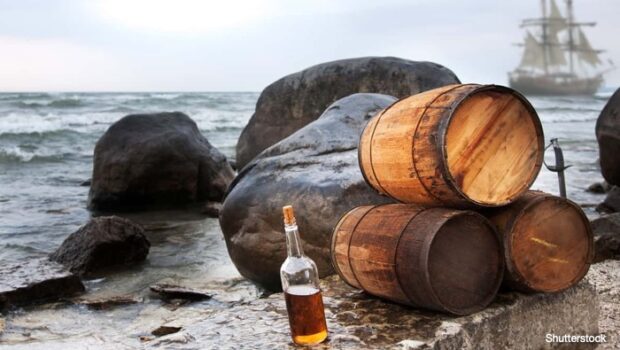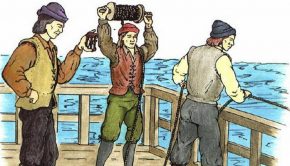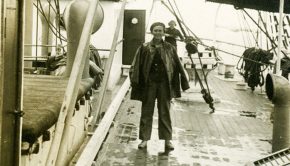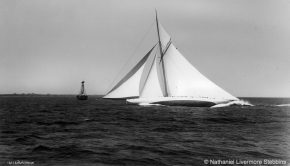Common idioms from the seafaring days
Published on August 23rd, 2023
Three women sit on a curb, with one on the right whispering something hand over her mouth. These days, scuttlebutt is a word used to describe gossip. But centuries ago on the open seas, it was the name of a water cask sailors gathered around. How naval phrases from the 18th century became common idioms today?
Seafaring in the 18th century came with a unique language of its own. Author David Grann became familiar with naval terms and phrases while writing The Wager: A Tale of Shipwreck, Mutiny and Murder, a true story about the captain and crew of His Majesty’s Ship the Wager.
The book tells the tale of the British warship, which set out on a secret mission in the 1740s to capture a Spanish galleon filled with treasure. But along the way, the ship encounters trouble and eventually becomes wrecked on an island off Patagonia in Chile. The crew work to build an outpost, but mutiny ensues.
“On a ship, everything has a distinct name,” Grann said. “Even an object on land will have a different name on the ship. If you were to mistake a term, you would be dismissed as a pitiful landlubber, which is the worst insult you could give somebody on a warship.”
And some of that language, from scuttlebutt to turning a blind eye, found its way into modern lingo.”I had no idea before researching this book how much of our language derives from the Age of Sail,” he said. Grann explained some of their original meanings.
Feeling crambazzled? A linguist shares words from the past that are fitting for 2023 drinking and gossiping. Before people gathered around the water cooler to share gossip, sailors walked up to the scuttlebutt and gabbed.
“It was a barrel in the middle of the ship filled with water, and the seamen would gather around it,” Grann explained. What would they do when they were gathering their water rations? They would gossip.”
Speaking of drinking, three sheets to the wind, a phrase describing someone’s inebriation, similarly comes from the ship deck. “When certain sheets, or ropes, to one of the sails were let loose, the ship would kind of bounce around drunkenly out of control.”
When someone is not feeling well, they might be feeling “under the weather.” It’s a phrase Grann always thought was a metaphor. But with harsh weather on the open seas, sailors weren’t expected to serve on the deck when they were sick. “They were not exposed to the weather,” said Grann. “They were kept below, so they were quite literally under the weather.”
And if you’ve ever turned a blind eye to something, you have Britain’s Vice-Admiral Horatio Nelson to thank for that particular turn of phrase. When he wanted to ignore a superior officer’s signal to retreat, Grann said, Nelson would lift his telescope up to, literally, his blind eye. To turn a blind eye today indicates a desire to pretend something isn’t happening. – Full story









 We’ll keep your information safe.
We’ll keep your information safe.